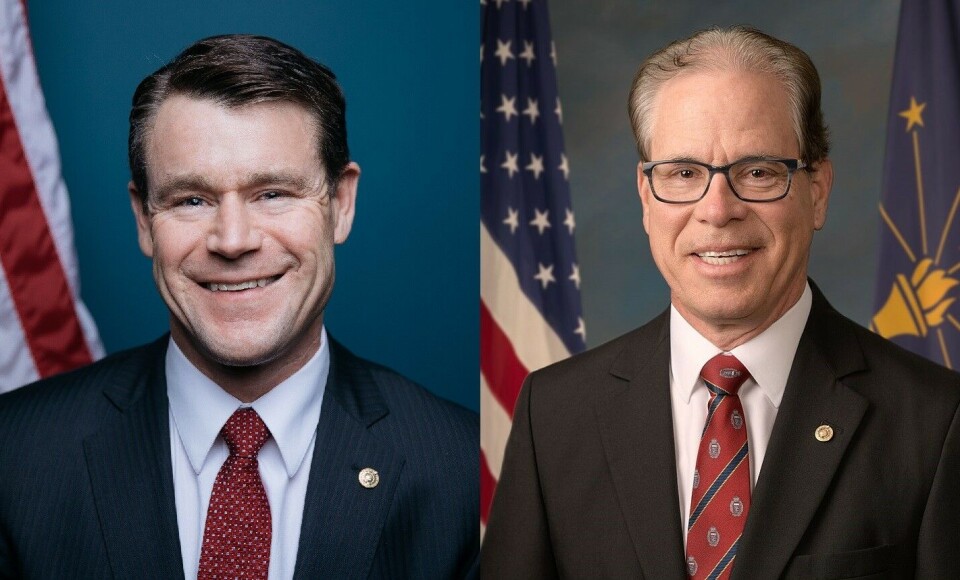
Indiana senators bid to stop new block on GM salmon
Transgenic-salmon producer AquaBounty has won the backing of two Indiana senators to remove a new block on selling its fish in the United States.
A US Food and Drug Administration (FDA) decision in March resolved a labelling issue that had prevented AquaBounty from producing and selling its fish in the US and paved the way for production to begin at AquaBounty’s on-land fish farm in Albany, Indiana.
But Alaskan Republican senator Lisa Murkowski, who calls GM salmon “Frankenfish” and suggests they are a threat to the wild salmon fishing industry, intervened last week.

Consumer study
She successfully added an extra provision – known as a rider - to a Senate FDA/USDA appropriations bill that could stall the advent of GM salmon sales for years.
The rider requires a commission convened by the US Department of Agriculture (USDA) and the FDA to conduct a consumer study on the efficacy of USDA’s biotech food disclosure rule for informing consumers of the genetically engineered content of salmon products.
Now two senators from Indiana have launched an attempt to have Murkowski’s rider removed.
Undermines science
According to IEG Policy website, Mike Braun and Todd Young, who are also Republicans, say the rider is “unprecedented and inappropriate” and have written to Senate Appropriations chairman Richard Shelby and ranking member Patrick Leahy to urge them to reject Murkowski’s provision.
“For Congress to intervene to prohibit commercialisation of an FDA-approved product on grounds other than safety or efficacy is an unprecedented action that not only undermines FDA’s scientific expertise, but it also casts serious doubt for every other FDA-approved product and their continued ability to commercialise,” wrote the senators.
Remarkable operation
In a comment article in USA Today, Young said he had visited AquaBounty’s recirculating aquaculture system (RAS) facility in Albany, where he “saw first-hand this remarkable operation and the safeguards they have in place”.
Outlining the impact of Murkowski’s rider remaining in the bill, he wrote: “The results would be this: 160,000 fish currently maturing in Albany would be euthanised.
“Dozens of Hoosiers (Indiana residents) would be out of a job.
“The operation would be moved to another country — likely China — which sees the incredible value in dominating agriculture innovation.
“And the young dreamers and doers across America who are investing in ag technology will suddenly have to wonder whether their effort and investment is truly worth it.
‘How free is our market?’
“If one legacy industry (Alaskan salmon fishing) can manipulate Congress to unilaterally kill one innovative company, how free is our free market?
“I’m doing everything I can to keep this provision out of our funding bills to protect innovation and ensure the free market is allowed to operate. But with powerful interests organising this manoeuvre behind closed doors, there are no guarantees of success.”
He told AquaBounty: “You’re on the right side of history. You just better hope you’re on the right side of Congress.”
Benefits foreign companies
The Wall Street Journal used an opinion column 10 days ago to criticise Murkowski’s blocking attempt, saying these types of studies “are usually reserved for pharmaceutical drugs, can take years, and in this case would require the destruction of AquaBounty’s fish, as well as many jobs”.
In a statement after Murkowski’s rider was accepted, AquaBounty chief executive Sylvia Wulf said: “This misguided move by one senator hurts a US company, costs US jobs, wastes taxpayer money, and ultimately benefits foreign companies that sell fish to US consumers.
“In an attempt to protect her home state fishing industry, a single senator is ignoring the authority and decisions of Congress and two federal regulatory agencies and depriving American consumers of safe, healthy, nutritious and domestically raised salmon.”






















































